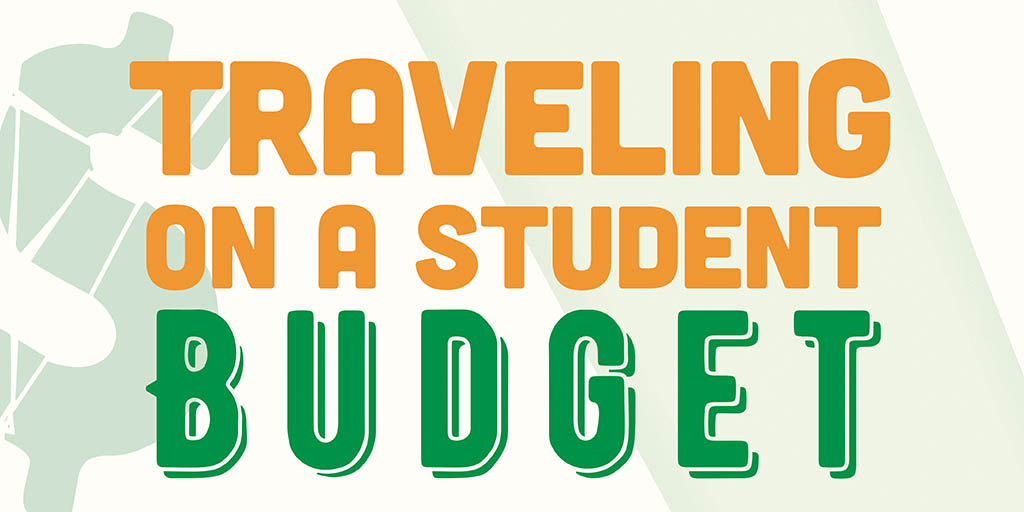Travelling on a student budget

Wanderlust is term coined to define the desire to travel. Once you’ve been bitten by the wanderlust bug, it’s nearly impossible to ignore. As wonderful and dreamy travelling may be, it can be intimidating especially for a student. A huge obstacle for travelling is budget. But why spend extra money if you don’t need to? Seeing the country or even the world doesn’t have to break the bank.
Transport
One of the most expensive parts of travelling is often getting from point A to point B. There are plenty of options available: buses like Greyhound offer reasonably priced travel, while Via Rail offers a student discount and a summer pass that allows unlimited trips across Canada. Lastly, London has recently introduced a discount airline called Swoop.
There are also ways to save money on international travel. Because it’s cheapest to fly when it’s not peak travel time, research is required to understand when tourism is at its lowest in your desired destination. Travel agencies tend to not be the most useful when finding the cheapest alternatives. Resources like Google Flights and skyscanner.com show you the cheapest and fastest ways to get your destination. Another tip you can apply to all of the above is to book in advance as much as possible, as prices tend to go up closer to departure. Once you have arrived at your destination, avoid taxis and Uber rides if possible. Public transit is generally inexpensive and will most likely be near many of the main tourist attractions.
Accommodations
Hotel rooms can also be a money pit, but luckily there are alternatives, such as websites like hostelworld.com. Hostels are great option, especially if you plan on travelling around Europe. Many hostels include food, a laundry room and a shared room. Airbnb is another great option. Airbnb allows users to find a room/apartment/house to themselves in almost any part of the city. Airbnbs can be very cheap, however, always be sure to research the location and the room reviews.
Food
One of the best parts about travelling is enjoying the food! Research your destination’s cost of living to get an idea of how expensive eating will be. If you’d rather not have to eat out every meal of your trip, take the time to stop at a local market or grocery store and get a few snacks or frozen meals. Aim to eat as locally as possible. Some restaurants may have student discounts, so doing research in advance would be best for finding deals.
Activities
There are plenty of free activities in every city. Budget what you would be willing to spend on museums, tours and any other activities. Many museums (such as the Royal Ontario Museum) offer free or discount days for students. Check online to get an idea of what upcoming events are coming to the city. Most cities have their own tourism website that lists such events (i.e., tourismlondon.ca).Look at travel guides, YouTube vlogs and travel blogs to get an idea of what you want to see.














